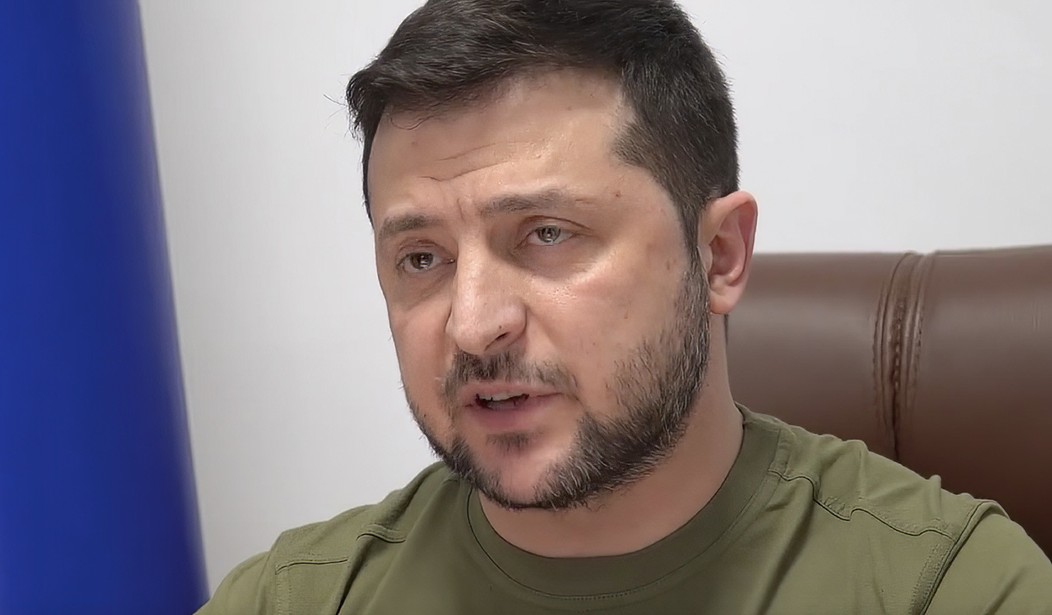It’s very possible that the first real friction between Ukraine and its western allies will happen as Kyiv begins a campaign to retake Crimea. The United States and its European allies have given lip service to the proposition that Crimea belongs to Ukraine and in this, they have expressed solidarity with Ukraine’s President Volodymyr Zelenskyy.
But it’s complicated. Russia’s claim to the peninsula may not be recognized by international law but more than two-thirds of the population is ethnic Russian. That, the fact that the Russian Black Sea fleet is based in Sevastapol, and the military value of the peninsula make Russia’s claims if not legal, certainly understandable.
And the question of what Russia might do to keep Crimea Russian has western military leaders up at night.
“The West has been a little more careful talking about Crimea compared to the rest of Ukraine,” said William Courtney, a former ambassador and White House Russia adviser now with the nonprofit Rand Corporation. “I think for two reasons: the military challenge and the risk of escalation.”
Losing Crimea would be a humiliation that would finish Putin and possibly end the war. Indeed, there are plans afoot for a Ukrainian invasion of Crimea beginning this month. While any battle to retake the peninsula would necessarily be bloody, some western observers who’ve seen the plan find it credible.
For our VIPs: EU Says U.S. Is Profiting From the War
That said, most Ukrainians won’t want the war to end without a successful battle for Crimea.
For many Ukrainians, only the recapture of Crimea would bring a real end to the eight-year military conflict with Russia. Polls suggest a large majority consider it the only acceptable “victory” in this war. For Russians, the 2014 annexation righted a historical wrong done to them at the end of the Cold War, and the peninsula has taken on an almost mystical importance. Losing it now, in a war that was meant to gain territory, would be a monumental humiliation for the Kremlin. The political stakes of the battle couldn’t be higher.
Joint Chiefs Chairman Mark Milley told reporters last month, “The probability of a Ukrainian military victory — defined as kicking the Russians out of all of Ukraine to include what they claim as Crimea — the probability of that happening any time soon is not high, militarily.”
The Ukrainian military has surprised us before, so perhaps Milley is being a little too dismissive. But the real question is what Russia might do to hang on to Crimea in the event the Ukrainian army shocks us all and gains the upper hand.
Certainly, we might expect more nuclear gamesmanship from Vladimir Putin. But would he use nuclear weapons to maintain control of Crimea? In 2014, Russia was ready to put its nuclear forces on alert to deter NATO intervention. It might be in Crimea that Putin ends his bombastic bluffing and actually goes nuclear.
Putin sees Crimea as holy ground. World War II Axis forces waged an eight-month-long campaign to conquer the peninsula, and it was the scene of some of the bloodiest battles on the Russian front. It’s not likely that Vladimir Putin would allow Ukraine to retake Crimea under any circumstances.
The sheer scale of any ground invasion of Crimea makes it a daunting task. Ukraine has no amphibious landing capabilities, meaning the invasion would have to traverse treacherous, swampy ground for much of the way.
Alina Frolova, a former Ukrainian deputy defense minister, notes the coming winter cold will make offensive operations especially difficult, with the following spring thaw making roads almost impassable. “Obviously the problem is with access to Crimea,” she told Grid. “We have very narrow access, and that’s obviously not the best position with high force rates.”
With Vladimir Putin setting a very high bar for negotiations, the United States is going to have to decide how much it should encourage its ally in its drive to retake Crimea. It’s likely to be very bloody and is not without risk of a nuclear confrontation. And what if Ukraine is successful? With two-thirds of Crimea made up of ethnic Russians, the potential for insurgency can’t be dismissed.
If negotiations didn’t make sense to Zelensky before, perhaps they will make sense to him now.










